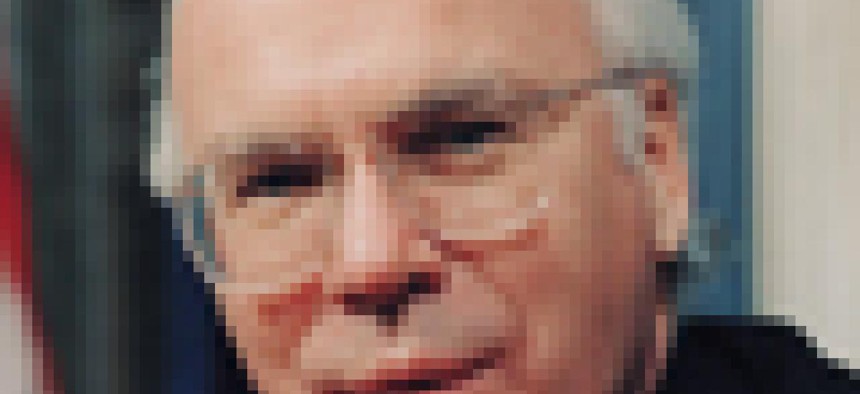Senate Lawmakers Target Cybersquatters

Congress is going after the cybersquatters, taking steps to end the unauthorized use of trademark names on the Internet.
By Anne Gallagher, Contributing WriterCongress is going after the cybersquatters, taking steps to end the unauthorized use of trademark names on the Internet. Just before leaving town for a monthlong August recess, Senate lawmakers unexpectedly dropped a hammer on cybersquatters by passing a bill Aug. 5 in a quick voice vote to enforce trademarks in cyberspace. The Anticybersquatting Consumer Protection Act of 1999 (S. 1255), establishes civil penalties of up to $100,000 for cybersquatting. The fines have the potential to grow three times that under the legislation.The House will move on its own counterpart bill when members of Congress return to Washington in September, congressional aides said. The House Judiciary Committee is expected to first consider a companion bill that committee member Rep. James Rogan, R-Calif., intends to introduce.Cybersquatting is a practice in which individuals reserve Internet domain names or other identifiers of online locations that are similar or identical to trademark names. The cybersquatters have a variety of motives, from creating parodies of businesses to leading unsuspecting consumers to pornography and other sites.While the cybersquatting bills might be making their way through Congress with ease, the Clinton administration is not all that pleased. It is opposed to becoming a referee for domain names and wants disputes settled in the courts instead. And a small coalition of Internet users have called the bill unconstitutional.However, many in Congress argue something must be done soon. They said the courts are insufficient to handle what is becoming a growing problem and impediment to the future growth of electronic commerce. Senate Judiciary Committee Chairman Orrin Hatch, R-Utah, who sponsored the Senate's bill with ranking Democrat Sen. Patrick Leahy, Vt., said one court reported that trying "to apply established trademark laws in the fast-developing world of the Internet is somewhat like trying to board a moving bus."The new bill outlines eight factors for courts to consider in determining whether bad-faith intent to profit is proven in a cybersquatting case. Among the factors for the courts to consider are:?Whether the domain name is the legal name or nickname of the registrant;?The previous use of the registrant of the domain name in connection with the bona fide offering of any goods or services;?The registrant's intent to divert consumers from the trademark owner's online location in a manner that could harm the trademark's goodwill.During a short debate, supporting senators warned that commercial sites are not the only ones suffering at the hands of domain-name pirates."Even Congress is not immune," Hatch said. "While cspan.org provides detailed coverage of the Senate and House, cspan.net is a pornographic site. Moreover, senators and presidential hopefuls are finding that domain names like bush2000.org and hatch2000.org are being snatched up by cyberpoachers intent on reselling these names for a tidy profit."The Senate bill does not help politicians protect their names, but Hatch said it would help small and large businesses and consumers doing business online. A group of corporations, including AT&T, Disney and America Online, have joined as the Private Sector Working Group to support the legislation.Lawmakers also seem to agree one of the problems facing the legitimate companies and trademark owners is that it is sometimes next to impossible to track down the cybersquatters, who often register domain names under aliases or provide false information on their registration applications.The Senate bill will make it easier to track down these people, Hatch said. The bill would make liable for actual or statutory damages "any person who, with bad faith intent to profit from the goodwill of another's trademark, without regard to goods or services of the parties, registers, traffics in or uses a domain name that is identical or confusingly similar to a distinctive trademark or dilutive of a famous trademark."At the same time, the bill makes it clear that uses of domain names by persons other than the domain name registrant for purposes such as hypertext linking, directory publishing or search engines are not covered by the prohibition.Hatch and other supporters of this legislation also contend that enforcing or modifying trademark laws is only part of the solution to stopping cybersquatting. "Up to now, people have been able to register any number of domain names in the popular .com domain with no money down and no money due for 60 days," Hatch said. "Network Solutions Inc., the dominant Internet registrar, announced just last month that it was changing this policy and requiring payment of the registration fee up front." And the company said that it was making this change to curb cybersquatting.While this bill might be a first step, a number of ongoing disputes in and out of Congress on other cyberspace issues will crop up this fall. Among them are the future of the Internet Corporation for Assigned Names and Numbers and other domain name registration practices.


Sen. Patrick Leahy
NEXT STORY: Capitol Roundup